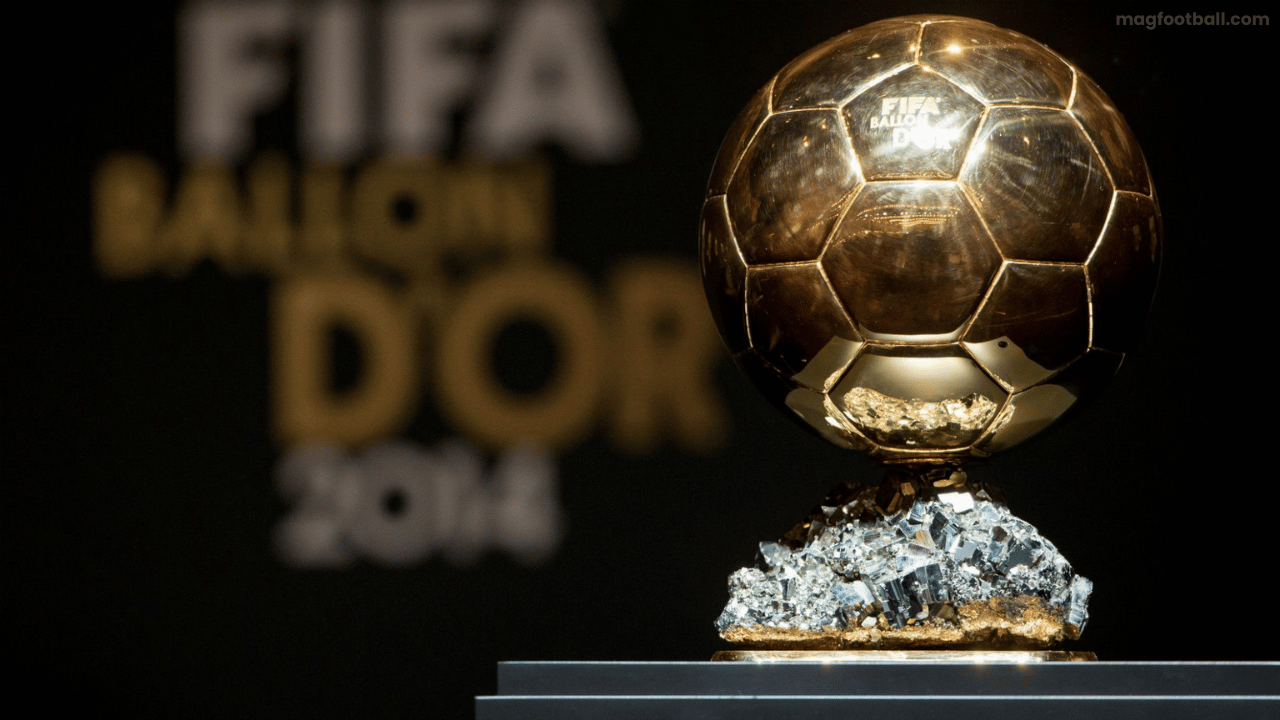How is the Ballon d’Or winner selected?

The Ballon d’Or is one of the most prestigious awards in the world of football, given annually to the best male and female football players based on their performances over the previous calendar year. The selection process for this award involves various steps, ensuring that only the most deserving footballers are recognized for their achievements.
Table of Contents
The Origins of the Ballon d’Or
First introduced by French magazine France Football in 1956, the Ballon d’Or has evolved over time. Initially, it was an award given to the best European player playing in Europe, but it became a global award in 1995, allowing players from around the world to be eligible. This opened the door for international talents like Lionel Messi and Cristiano Ronaldo, who have both dominated the award in recent years.
Criteria for Ballon d’Or Selection
To understand how the Ballon d’Or winner is selected, it’s important to first look at the criteria that define the winner. The process has become more transparent over the years, but the main focus has always been on a player’s individual performance, team success, and overall sportsmanship. Below are some of the essential factors considered:
- Individual Performance: The most significant factor is how a player performs throughout the season. This includes goals, assists, defensive contributions, and moments of brilliance on the field. For strikers like Lionel Messi and Cristiano Ronaldo, this typically means tallying impressive goal numbers. For midfielders and defenders, it’s about controlling the game and contributing to the team’s overall success.
- Team Success: Players who win domestic league titles, continental tournaments (such as the UEFA Champions League or Copa Libertadores), and international championships (like the World Cup or the UEFA European Championship) generally have a better chance of winning. Achievements with both club and country are highly regarded.
- Skill and Talent: A player’s technical ability, football intelligence, and consistency in delivering results are vital. Over the years, players like Messi have consistently demonstrated high levels of skill and creativity, making them perennial favorites.
- Sportsmanship: Another crucial element is a player’s professionalism, leadership, and integrity on and off the pitch. How the Ballon d’Or winner is selected takes into account not just their actions during matches but their overall behavior as representatives of the sport.
The Selection Process: Who Votes for the Ballon d’Or?
The voting process for the Ballon d’Or involves a panel of journalists from around the world, each representing different countries. Here’s how it works:
- Shortlist: France Football releases a shortlist of 30 candidates for the men’s award and 20 for the women’s award. The shortlist is compiled by the editorial team based on a player’s performances during the previous season.
- Voting: Each journalist from the voting panel is asked to rank their top five choices from the shortlist. They score points based on their ranking: first place receives 6 points, second gets 4, third 3, fourth 2, and fifth 1.
- Points System: The winner is determined by the total number of points received from all the journalists’ votes. The player with the highest points across the globe is awarded the Ballon d’Or.
- Jury: In recent years, the voting jury has consisted of national team captains, coaches, and a select group of football journalists, making the process more democratic and inclusive.
Differences Between Men’s and Women’s Ballon d’Or
The Ballon d’Or Féminin (the award for female players) follows a similar process but focuses on the top female players from clubs and international teams. The rise in women’s football has led to increased attention on players like Megan Rapinoe, Alexia Putellas, and Sam Kerr, who have all been contenders for the prestigious award.
Notable Ballon d’Or Winners and Trends
Over the years, several players have consistently found themselves in the conversation for the Ballon d’Or. Lionel Messi, for instance, has won the award a record number of times, while Cristiano Ronaldo follows closely behind. These two players have defined modern football and, in many ways, have shaped how the Ballon d’Or winner is selected due to their unprecedented rivalry. Messi’s victories have often been attributed to his remarkable individual performances, dribbling ability, and game-changing moments, while Ronaldo’s victories have leaned heavily on his goal-scoring prowess and clutch performances in crucial matches.
However, recent years have also seen the emergence of younger stars like Kylian Mbappé and Erling Haaland, who are expected to challenge for the award in the future. These players’ performances in the Champions League and domestic leagues will likely shape how the Ballon d’Or winners are selected in the years to come.
The Role of the Club and National Team in Ballon d’Or Success
A crucial element in the Ballon d’Or selection is the success of both the player’s club and national team. For example, when Luka Modrić won the Ballon d’Or in 2018, it was largely due to his instrumental role in guiding Croatia to the World Cup Final, coupled with his success at Real Madrid in the Champions League. Players who perform well in international tournaments, such as the World Cup or UEFA European Championship, often get a significant boost in their chances of winning.
Controversies in Ballon d’Or Selection
The Ballon d’Or process is not without controversy. Critics argue that the selection sometimes favors attacking players, with midfielders and defenders often overlooked. For instance, Virgil van Dijk’s second-place finish in 2019 behind Lionel Messi sparked debate, as many believed Van Dijk deserved to win due to his dominant performances for Liverpool in their Champions League-winning season.
Furthermore, some fans and analysts argue that certain players are favored based on reputation or media exposure rather than on-field performance. This has led to debates about how the Ballon d’Or winner is selected and whether the criteria need to be adjusted to reflect the contributions of all positions equally.
Conclusion: How the Ballon d’Or Winner Is Selected
The process of selecting the Ballon d’Or winner is a comprehensive one, taking into account various factors such as individual performance, team success, skill, and sportsmanship. While it is not without its criticisms, the award remains one of the highest honors in the world of football. Over the years, legends like Messi, Ronaldo, and Modrić have claimed the prize, and new stars like Mbappé and Haaland will likely be the faces of the next generation of Ballon d’Or contenders.
In conclusion, how the Ballon d’Or winner is selected involves a careful evaluation of a player’s contribution to both their club and country. As football continues to evolve, so too will the criteria and trends that shape the selection of the world’s best players.



